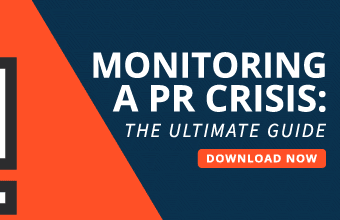The “Jade Helm 15” conspiracy theory — which has, incredibly, gone national in scope with more than 1,000 online news mentions in the past six days — is one that, quite frankly, shows the gullibility and paranoia of humanity knows no bounds.
According to the theory, the Obama administration is planning a military invasion of Texas (yes — Texas). Walmart stores in the infamously well-armed state are also said to be digging secret underground tunnels to prep for this incursion, and that the stores will be used as staging areas and detention centres.
But as alarming as that all sounds, it gets worse: The theory has gone so mainstream that Walmart’s PR team was forced to comment on it this week (“There’s no truth to the rumors,” was the curt response from spokesperson Lorenzo Lopez).
And while no amount of PR will ever convince the hard-core theorists, it got us wondering: when should a PR and communications team take something like this seriously, and when and if they do, what should they do?
We spoke with Gary Frisch, of New Jersey-based Swordfish Communications, to get his take.
MediaMiser: Conspiracy theories are nothing new, but companies typically don’t address them from a PR standpoint. At what point does a company like Walmart have to take something like Jade Helm seriously enough to put out a statement?
Gary Frisch: If no one is picketing outside your doors or threatening a mass boycott, I don’t see a point at which a company has to take them seriously, and the company would be justified in not responding at all. A response, after all, only keeps the story going, and lends some degree of credibility to the group making the claims.
In a situation like this, I think you can trust the vast majority of the public to know the charges are ridiculous.
MM: What are the benefits of putting out a statement on such a thing as this?
GF: The only benefit is to generate positive social media buzz as a corporation that can display a sense of humor. For a megalithic company like Walmart, it’s not a bad thing to show a human side.
MM: What are the risks of addressing it in terms of potentially giving the conspiracy some legitimacy in the eyes of its propagators?
GF: At worst, a serious, legal department-approved response risks making you look stiff and too buttoned up…everything that makes the press and public skeptical of corporate statements to begin with. Also, it does provide a small victory to the conspiracy theorists, in the form of fodder that they can then debunk.
MM: If you were leading Wal Mart’s PR team, what would your response be to something like this?
GF: I would plant tongue firmly in cheek and say something like, ‘They’re on to us, but the tunnels are to facilitate Santa Claus getting gifts quickly to kids in the Southwestern U.S., which is a notoriously unfriendly environment to reindeer. That and to smuggle the occasional contraband from one state to another.’
If you simply deny it the theorists won’t believe you anyway, and they’ll say no company involved in such a thing would admit it. If you can get them to scream, ‘Those tunnels are not for Santa Claus!’, you’ve won.
MM: What is your advice to other PR teams who may have to deal with similar situations?
GF: Don’t go in for a knee-jerk response, and don’t underestimate the public’s intelligence. The C-level executives should be involved, but ultimately they should defer to the communications professionals whose job is to read the tea leaves.
If the situation is clearly bonzo, like this, trust that most people will know better and come down on your side. In that case, tongue-in-cheek or indignation is appropriate. If it’s something more plausible, like someone claiming they found a human finger in one of your products, then you need to be more serious and say you’ll investigate, or, like Wendy’s, take a hard stance and claim extortion as you conduct your investigation.









